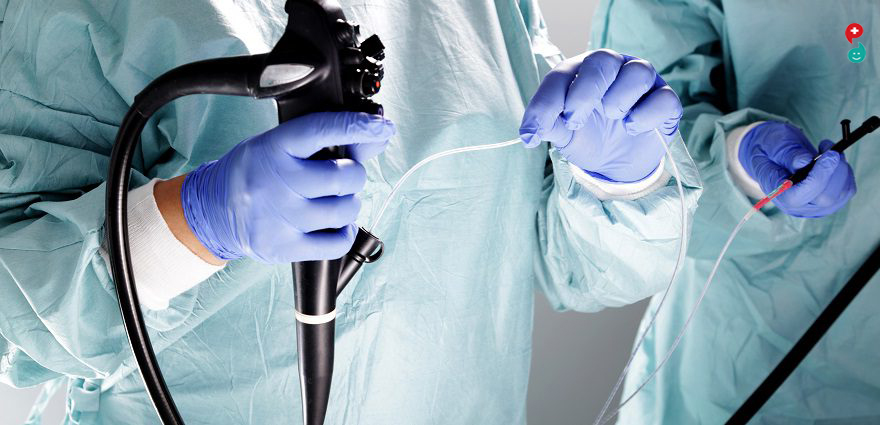
What is Vasectomy reversal?
Vasectomy reversal is surgery to undo a vasectomy. It reconnects each tube (vas deferens) that carries sperm from a testicle into the semen. After a successful vasectomy reversal, sperm are again present in the semen, and you may be able to get your partner pregnant.
Pregnancy rates after vasectomy reversal will range from about 30 percent to over 90 percent, depending on the type of procedure. Many factors affect whether a reversal is successful in achieving pregnancy, including time since a vasectomy, partner age, surgeon experience and training, and whether or not you had fertility issues before your vasectomy.
Why it's done
Men decide to have a vasectomy reversal for a number of reasons, including loss of a child, a change of heart or remarriage. A small number of men have a vasectomy reversal to treat testicular pain that may be linked to a vasectomy.
Risks
Almost all vasectomies can be reversed. However, this doesn't guarantee success in conceiving a child. Vasectomy reversal can be attempted even if several years have passed since the original vasectomy — but the longer it has been, the less likely it is that the reversal will work.
Vasectomy reversal rarely leads to serious complications. Risks include:
Bleeding within the scrotum. This can lead to a collection of blood (hematoma) that causes painful swelling. You can reduce the risk of hematoma by following your doctor's instructions to rest, use scrotal support and apply ice packs after surgery. Ask your doctor if you need to avoid aspirin or other types of blood-thinning medication before and after surgery.
Infection at the surgery site. Although very uncommon, infections are a risk with any surgery and may require treatment with antibiotics.
Chronic pain. Persistent pain after vasectomy reversal is uncommon.
How you prepare
When considering vasectomy reversal, here are a few things to think about:
Vasectomy reversal may be expensive, and your insurance might not cover it. Find out about costs ahead of time.
Vasectomy reversals are generally most successful when they're done by a surgeon who is trained in and uses microsurgical techniques, including those that make use of an surgical microscope.
The procedure is most successful when performed by a surgeon who does the procedure regularly and who has done the procedure many times.
The procedure occasionally requires a more complex type of repair, known as a vasoepididymostomy. Make sure that your surgeon is able to perform this procedure if it's required.
When choosing a doctor, don't be afraid to ask questions about how many vasectomy reversals the doctor has done, the type of techniques used and how often the vasectomy reversals have resulted in pregnancy. Also ask about the risks and potential complications of the procedure.
Food and medications
Make sure you know what steps you need to take before surgery. Your doctor will probably ask you to stop taking certain medications, including blood-thinning medications and pain relievers, such as aspirin or ibuprofen (Advil, Motrin IB, others), because they can increase your risk of bleeding.
Clothing and personal items
Bring tightfitting undergarments, such as an athletic supporter, to wear after surgery. This will support your scrotum and hold bandages in place.
Other precautions
Arrange for someone to drive you home after surgery. Surgery generally takes about two to four hours, or longer. You may need additional time to recover if the procedure is done with general anesthesia. Ask your doctor when you can expect to go home after surgery.
What you can expect
After the procedure
Immediately after surgery, your doctor will cover the incisions with bandages. You'll put on tightfitting undergarments, such as an athletic supporter, and apply ice for 24 to 48 hours to reduce swelling.
You may be sore for several days. If your doctor places bandages over the incisions after your surgery, ask when it's OK to take them off. Any stitches should dissolve in seven to 10 days.
After you return home, take it easy and try to limit activities that might cause the testicles to move around excessively. As the anesthetic wears off, you may have some pain and swelling. For most men, the pain isn't severe and gets better after a few days to a week.
Your doctor may also give you the following instructions:
Wear an athletic supporter for several weeks at all times, except when showering. After that, you'll need to continue to wear one when you exercise.
For the first two days after surgery, avoid anything that might get the surgery site wet, such as bathing or swimming.
Limit any activities that may pull on the testicles or scrotum, such as jogging, sporting activities, biking or heavy lifting, for at least six to eight weeks after surgery.
If you have a desk job, you'll probably be able to return to work a few days after surgery. If you perform physical labor or have a job that requires much walking or driving, talk to your doctor about when it's safe to go back to work.
Don't have sexual intercourse or ejaculate until your doctor says it's OK. Most men need to refrain from ejaculating for two to three weeks after surgery.
Results
Sometime after surgery, your doctor will examine your semen under a microscope to see if the operation was successful.
Your doctor may want to check your semen periodically. Unless you get your partner pregnant, checking your semen for sperm is the only way to tell if your vasectomy reversal was a success.
When a vasectomy reversal is successful, sperm may appear in the semen within a few weeks, but it can sometimes take a year or more. The likelihood of achieving pregnancy depends on various factors, including the number and quality of sperm present and the female partner's age.







